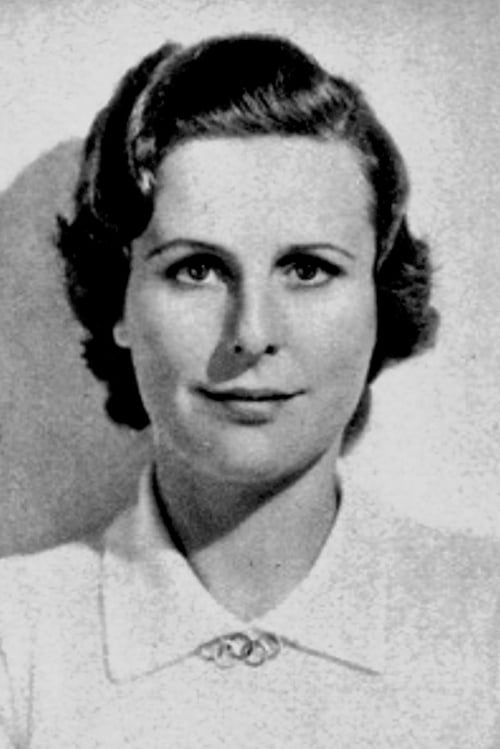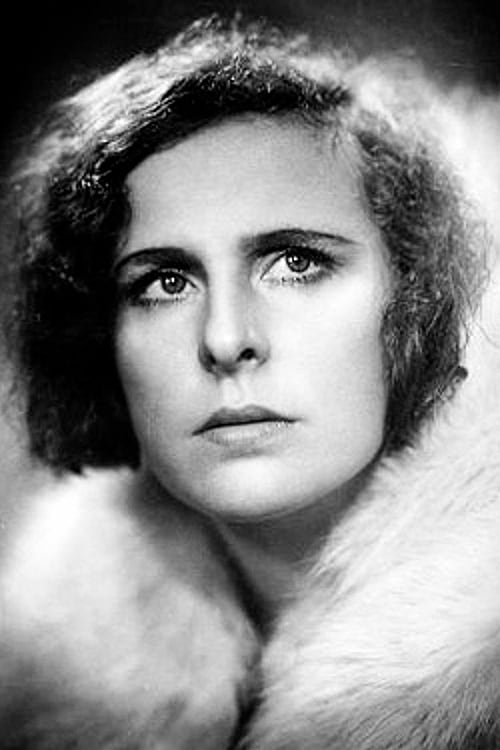
Leni Riefenstahl
出生 : 1902-08-22, Berlin, Germany
死亡 : 2003-09-08
略歴
Helene Bertha Amalie "Leni" Riefenstahl (22 August 1902 – 8 September 2003) was a German film director, actress and dancer widely noted for her aesthetics and innovations as a filmmaker. Her most famous film was Triumph des Willens (Triumph of the Will), made at the 1934 Nuremberg congress of the Nazi Party. Riefenstahl's prominence in the Third Reich along with her personal friendship with Adolf Hitler thwarted her film career following Germany's defeat in World War II, after which she was arrested but released without any charges.
Triumph of the Will gave Riefenstahl instant and lasting international fame, as well as infamy. Although she directed only eight films, just two of which received significant coverage outside of Germany, Riefenstahl was widely known all her life. The propaganda value of her films made during the 1930s repels most modern commentators but many film histories cite the aesthetics as outstanding. The Economist wrote that Triumph of the Will "sealed her reputation as the greatest female filmmaker of the 20th century".
In the 1970s Riefenstahl published her still photography of the Nuba tribes in Sudan in several books such as The Last of the Nuba. She was active up until her death and also published marine life stills and released the marine-based film Impressionen unter Wasser in 2002.
After her death, the Associated Press described Riefenstahl as an "acclaimed pioneer of film and photographic techniques". Der Tagesspiegel newspaper in Berlin noted, "Leni Riefenstahl conquered new ground in the cinema". The BBC said her documentaries "were hailed as groundbreaking film-making, pioneering techniques involving cranes, tracking rails, and many cameras working at the same time".
Description above from the Wikipedia article Leni Riefenstahl, licensed under CC-BY-SA, full list of contributors on Wikipedia.

Self (archive footage)
Countless people around the world know the pictures from Leni Riefenstahl's films, even if they have not seen them in their entirety. The work of the German director has burned itself into the collective memory. Even decades after the end of the Nazi era, she showed no remorse and presented herself as an apolitical, naive follower of the Nazi criminal regime. Her artistic service for the cinema was always recognized. But book author Nina Gladitz shows after decades of research that Hitler's favorite filmmaker was not only a follower, but also a perpetrator during the Third Reich, who instrumentalized other filmmakers such as the brilliant cinematographer Willy Zielke in order to gain fame for herself.
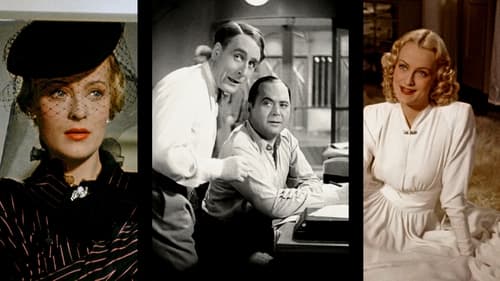
Self - Filmmaker (archive footage)
Film journalist and critic Rüdiger Suchsland examines German cinema from 1933, when the Nazis came into power, until 1945, when the Third Reich collapsed. (A sequel to From Caligari to Hitler, 2015.)

Self

zo záznamu

Herself
Documentary continuing Breloer's exploration of Speer's life, focusing on the post-Spandau years.

At the age of 97 Riefenstahl returns to Sudan for one final farewell to the Nuba that she lived with for 8 months and photographed and filmed extensively. Müller documents her return after 23 years away and her reaction to the collapsing culture that she once celebrated so avidly in her photographs.

Writer
Riefenstahl explores the undersea world of coral reefs in various oceans around the world. Soundtrack by Giorgio Moroder.

Riefenstahl explores the undersea world of coral reefs in various oceans around the world. Soundtrack by Giorgio Moroder.

Director
Riefenstahl explores the undersea world of coral reefs in various oceans around the world. Soundtrack by Giorgio Moroder.

Herself
An interview with infamous German filmmaker Leni Riefenstahl carried out by Sandra Maischberger in preparation for the subject's 100th birthday, and the release of not only her final film, but her first film in 48 years.

From Stag Beetle to Swastika narrates in a richly detailed, associative montage the boundless possibilities of manipulating images and using images to seduce.

Herself (archive footage)

Self
Filmmaker Jonas Mekas films 160 underground film people over four decades.

Self
A meditation on the first 100 years of German cinema, featuring some of its greatest directors.
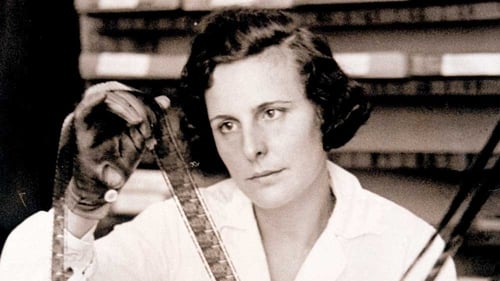
Herself
This documentary recounts the life and work of one of most famous, and yet reviled, German film directors in history, Leni Riefenstahl. The film recounts the rise of her career from a dancer, to a movie actor to the most important film director in Nazi Germany who directed such famous propaganda films as Triumph of the Will and Olympiad. The film also explores her later activities after Nazi Germany's defeat in 1945 and her disgrace for being so associated with it which includes her amazingly active life over the age of 90.

Self
Examines the use of Sinti in the making of "Tiefland". Gladitz claims that Riefenstahl knew that they would be sent to Auschwitz.

Herself - Spectator
Edited from almost 100 km of film footage shot during the Games, this feature documentary is a breathtaking portrait of the 1976 Montreal Olympics. Much more than a simple record of the Games, the film approaches each event with the intention of revealing the athlete - whether winner or loser - as a unique individual.

Self - Interviewee
The film tells the cultural story of Berlin during the Weimar Republic through interviews with a number of persons who were involved in literature, film, art, and music during the period. It includes interviews with Christopher Isherwood, Louise Brooks, Lotte Eisner, Elisabeth Bergner, Francis Lederer, Carl Zuckmayer, Gregor Piatigorsky, Claudio Arrau, Rudolf Kolisch, Mischa Spoliansky, Herbert Bayer, Mrs. Walter Gropius, and Arthur Koestler.

herself
A semi-documentary account of the author Thomas Wolfe's trip to Berlin in the summer of 1936.
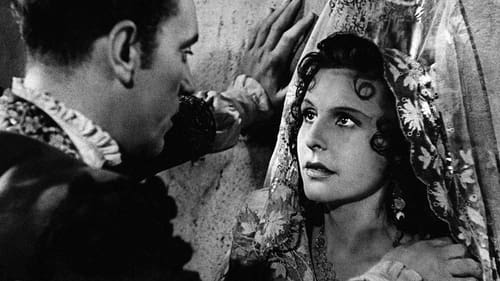
Editor
Set in the early part of 20th century Europe. There lived a dancer who becomes the romantic bone of contention between a humble shepherd and an imperious marquis.

Screenplay
Set in the early part of 20th century Europe. There lived a dancer who becomes the romantic bone of contention between a humble shepherd and an imperious marquis.

Martha
Set in the early part of 20th century Europe. There lived a dancer who becomes the romantic bone of contention between a humble shepherd and an imperious marquis.

Producer
Set in the early part of 20th century Europe. There lived a dancer who becomes the romantic bone of contention between a humble shepherd and an imperious marquis.

Director
Set in the early part of 20th century Europe. There lived a dancer who becomes the romantic bone of contention between a humble shepherd and an imperious marquis.

Idea
A 1941 Ministry of Information propaganda film set to the tune of The Lambeth Walk, a popular song from the musical Me and My Girl.
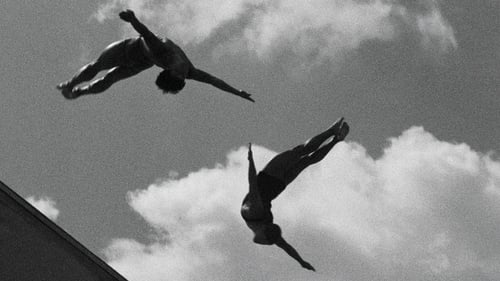
Editor
The Second part of Olympia, a documentary about the 1936 Olympic games in Berlin by German Director Leni Riefenstahl. The film played in theaters in 1938 and again in 1952 after the fall of the Nazi Regime.

Producer
The Second part of Olympia, a documentary about the 1936 Olympic games in Berlin by German Director Leni Riefenstahl. The film played in theaters in 1938 and again in 1952 after the fall of the Nazi Regime.

Screenplay
The Second part of Olympia, a documentary about the 1936 Olympic games in Berlin by German Director Leni Riefenstahl. The film played in theaters in 1938 and again in 1952 after the fall of the Nazi Regime.

Director
The Second part of Olympia, a documentary about the 1936 Olympic games in Berlin by German Director Leni Riefenstahl. The film played in theaters in 1938 and again in 1952 after the fall of the Nazi Regime.

Self (uncredited)
The First part of Olympia, a documentary about the 1936 Olympic games in Berlin by German Director Leni Riefenstahl. The film played in theaters in 1938 and again in 1952 after the fall of the Nazi Regime.

Editor
The First part of Olympia, a documentary about the 1936 Olympic games in Berlin by German Director Leni Riefenstahl. The film played in theaters in 1938 and again in 1952 after the fall of the Nazi Regime.

Producer
The First part of Olympia, a documentary about the 1936 Olympic games in Berlin by German Director Leni Riefenstahl. The film played in theaters in 1938 and again in 1952 after the fall of the Nazi Regime.

Screenplay
The First part of Olympia, a documentary about the 1936 Olympic games in Berlin by German Director Leni Riefenstahl. The film played in theaters in 1938 and again in 1952 after the fall of the Nazi Regime.

Director
The First part of Olympia, a documentary about the 1936 Olympic games in Berlin by German Director Leni Riefenstahl. The film played in theaters in 1938 and again in 1952 after the fall of the Nazi Regime.
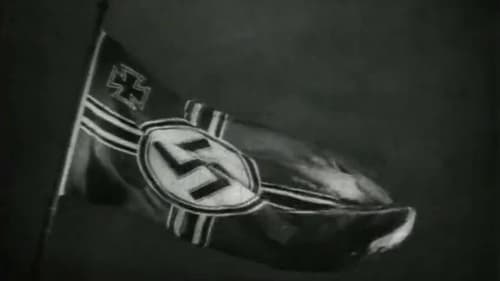
Editor
Filming of the performance show the Deutsche Wehrmacht (German Army) made during the Reichsparteitag of the NSDAP in Nurnberg 1935. Showing the readiness and the will of the newly build army. The third documentary directed by Leni Riefenstahl.

Producer
Filming of the performance show the Deutsche Wehrmacht (German Army) made during the Reichsparteitag of the NSDAP in Nurnberg 1935. Showing the readiness and the will of the newly build army. The third documentary directed by Leni Riefenstahl.

Director
Filming of the performance show the Deutsche Wehrmacht (German Army) made during the Reichsparteitag of the NSDAP in Nurnberg 1935. Showing the readiness and the will of the newly build army. The third documentary directed by Leni Riefenstahl.
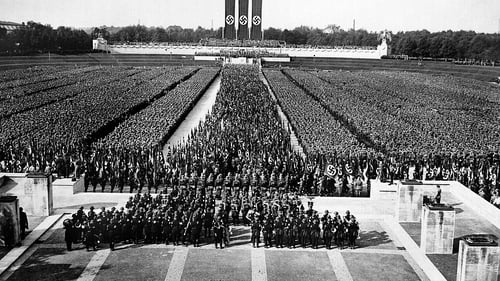
Editor
Filmmaker Leni Riefenstahl's controversial masterwork is an artful work of propaganda showcasing German chancellor and Nazi Party leader Adolf Hitler at the 1934 Nuremberg Rally. Edited from over 60 hours' worth of raw footage shot over the course of the rally's four days, the film is visually remarkable in the way it captures the event's enormous scale.

Screenplay
Filmmaker Leni Riefenstahl's controversial masterwork is an artful work of propaganda showcasing German chancellor and Nazi Party leader Adolf Hitler at the 1934 Nuremberg Rally. Edited from over 60 hours' worth of raw footage shot over the course of the rally's four days, the film is visually remarkable in the way it captures the event's enormous scale.

Producer
Filmmaker Leni Riefenstahl's controversial masterwork is an artful work of propaganda showcasing German chancellor and Nazi Party leader Adolf Hitler at the 1934 Nuremberg Rally. Edited from over 60 hours' worth of raw footage shot over the course of the rally's four days, the film is visually remarkable in the way it captures the event's enormous scale.

Director
Filmmaker Leni Riefenstahl's controversial masterwork is an artful work of propaganda showcasing German chancellor and Nazi Party leader Adolf Hitler at the 1934 Nuremberg Rally. Edited from over 60 hours' worth of raw footage shot over the course of the rally's four days, the film is visually remarkable in the way it captures the event's enormous scale.
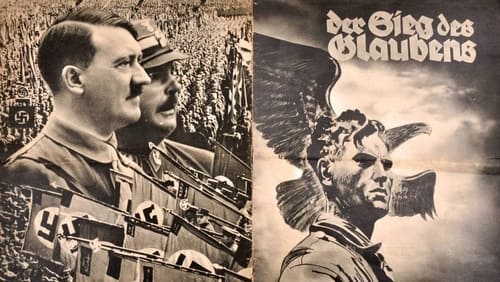
Director
The earliest Nazi propaganda film by Leni Riefenstahl, best known for her follow-up Triumph of the Will. Victory follows the Fifth Nazi Party Rally (Nuremberg, 30 August–3 September 1933) and shows the then close relationship between Adolf Hitler and Ernest Rõhm. Ten months later, on 1 July 1934, during the Night of the Long Knives, Hitler had Rõhm shot, which not only had the Sturmabteilung threat eliminated but also concreted Hitler's supremacy. Because Hitler sought to erase Rõhm from German history, he ordered all known copies of the film destroyed but one resurfaced in 1980s East Germany.
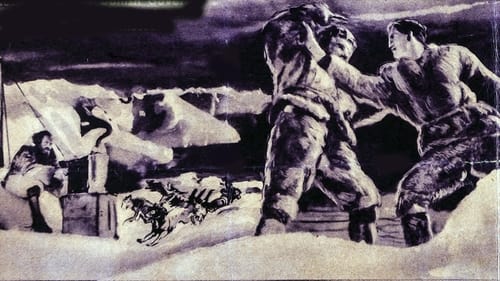
Ellen Lawrence
An expedition goes in search of a party lost in the Arctic the year before. This is the English language version of the German film S.O.S. Eisberg (1933), made at the same time but with a slightly different cast and released later that year. The German film is approximately 10 minutes longer.

Hella Lorenz
An expedition goes in search of a party lost in the Arctic the year before. The English language version of this German film was made at the same time but with a slightly different cast and released later that year as S.O.S. Iceberg, directed by Tay Garnett.
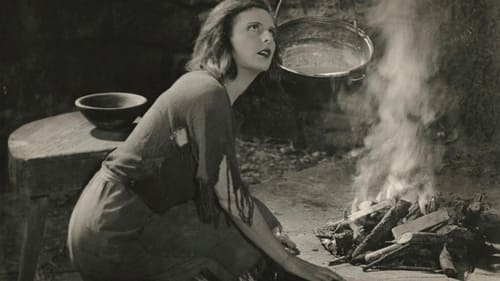
Editor
A young woman, Junta, lives apart from her village and, for her solitude and strangeness, is considered to be a witch; when she comes to the village for one reason or another, the townsfolk chase her away. They feel that she may in some way be responsible for the deaths of several young men of the village, who have felt compelled, one by one, to climb the local mountain - and fall to their deaths - on nights when the moon is full.

Producer
A young woman, Junta, lives apart from her village and, for her solitude and strangeness, is considered to be a witch; when she comes to the village for one reason or another, the townsfolk chase her away. They feel that she may in some way be responsible for the deaths of several young men of the village, who have felt compelled, one by one, to climb the local mountain - and fall to their deaths - on nights when the moon is full.

Story
A young woman, Junta, lives apart from her village and, for her solitude and strangeness, is considered to be a witch; when she comes to the village for one reason or another, the townsfolk chase her away. They feel that she may in some way be responsible for the deaths of several young men of the village, who have felt compelled, one by one, to climb the local mountain - and fall to their deaths - on nights when the moon is full.

Junta
A young woman, Junta, lives apart from her village and, for her solitude and strangeness, is considered to be a witch; when she comes to the village for one reason or another, the townsfolk chase her away. They feel that she may in some way be responsible for the deaths of several young men of the village, who have felt compelled, one by one, to climb the local mountain - and fall to their deaths - on nights when the moon is full.

Director
A young woman, Junta, lives apart from her village and, for her solitude and strangeness, is considered to be a witch; when she comes to the village for one reason or another, the townsfolk chase her away. They feel that she may in some way be responsible for the deaths of several young men of the village, who have felt compelled, one by one, to climb the local mountain - and fall to their deaths - on nights when the moon is full.

Leni
Leni, a daring young girl, is visiting for the second time a ski-resort. The local ski-teachers agree to organize a "fox-hunt" for her. Leni and Hannes are "the foxes", and about 40 other skiers will have to catch them, starting with a 15 minutes delay. It's not the story that makes this film, but the extremely spectacular, thrilling shots about skiing.
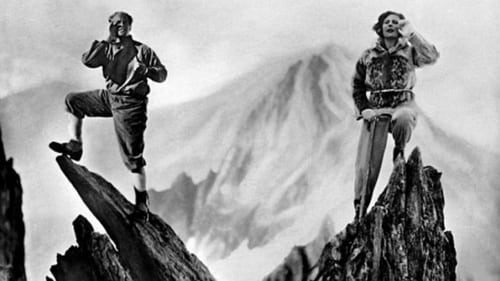
Hella Armstrong
In a lonely outpost atop the treacherous Mont Blanc, an intrepid scientist lives with minimal connection to the world below. Through the telegraph, Hanes (Sepp Rist) communicates with a beautiful astronomer (Leni Riefenstahl) and is occasionally visited by an airplane pilot (Ernst Udet) upon whom he depends on supplies. In the midst of a ferocious snowstorm, Hannes loses his gloves and his weather station is battered by the elements. Suffering frostbite and unable to descend the mountain, he sends out a desperate S.O.S. in the hope that someone can brave the elements and rescue him from certain death. Eerily romantic and overshadowed by the constant threat of doom, Storm over Mont Blanc is a "quintessential " mountain film by Arnold Fanck, the genre's innovator and unparalleled master.

Maria Maioni
Dr. Johannes Krafft climbs a 12,000-foot mountain over and over again to search for his wife, who was lost on their honeymoon. Another couple makes the dangerous climb with him.

Maria Vetsera
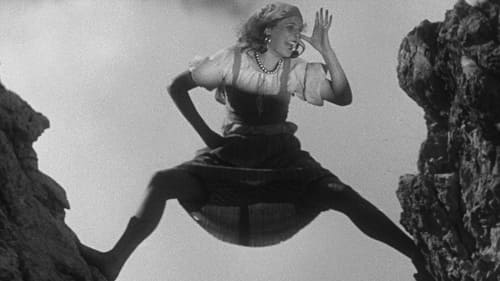
Gita
A young Italian girl living in the Dolomites falls in love with a member of a tourist party skiing on the nearby mountains.
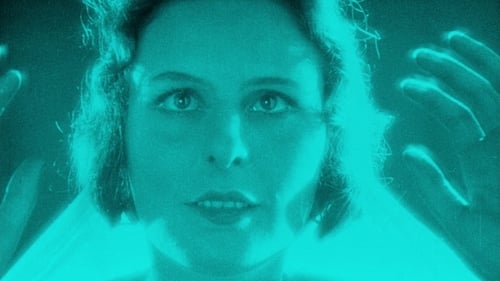
Diotima
Professional dancer Diotima finds herself the apex of a love triangle when she is pursued by two mountain climbers, Vigo and his unnamed older friend.

The perfect body as an object of cult worship. Based on the mass sports and body worship movement of the 1920s, the film propagates physical training and shows in stylized documentary scenes aspects of physical hygiene, gymnastics, sports and dancing as well as scenes in which supposed sportsmen of antiquity pose naked.

Self(archive)

